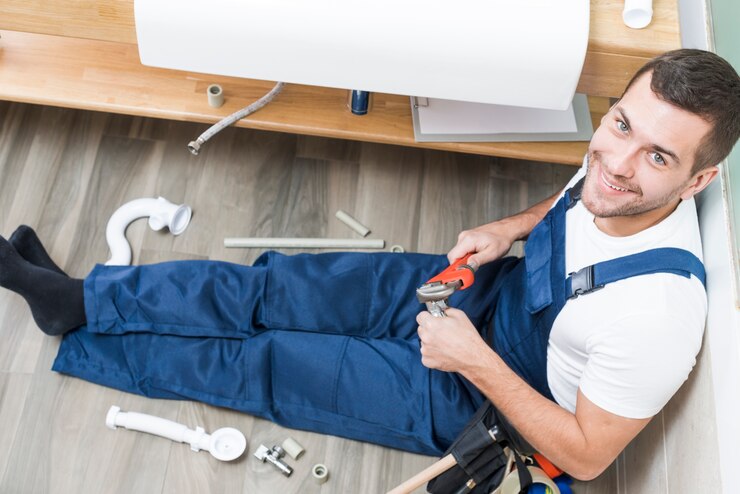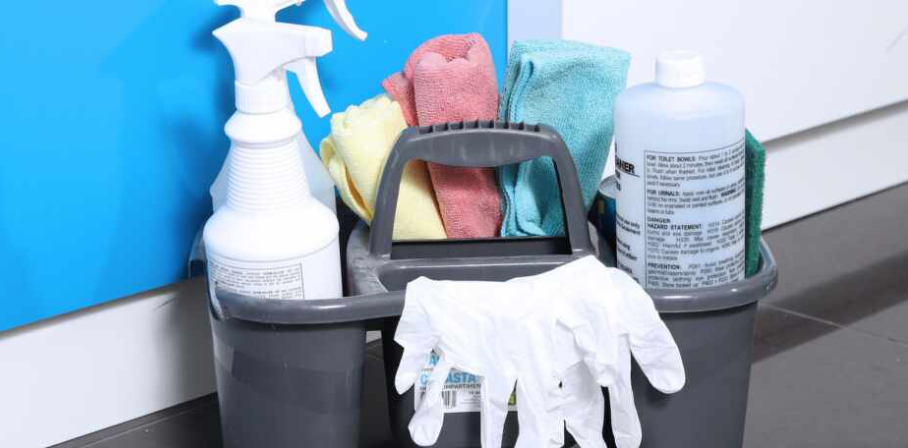Its normal functioning makes life convenient because it provides hot water for showers, cleaning, and cooking. Just like other equipment, water heaters’ problems may demand swift attention. Knowing these problems and their answers can help you keep your water heater longer. Here, we discussed the ten most common water heater repair problems and their practical solutions.
No Hot Water
If your water heater is not dispensing hot water, it could be due to a faulty heating element or an issue with the power supply. In electric water heaters, check the circuit breaker to ensure that there is power. The heating element must be replaced if the breaker is fine and has not tripped. Routine water heater maintenance can prevent these breakdowns.
Not Enough Hot Water
If your water heater is not producing enough hot water, it may be because the unit is undersized, sediment has built up, or the thermostat is malfunctioning. A professional water heater repair service can inspect the heater and recommend cleaning the tank or upgrading to a larger unit. Tankless water heaters are excellent for continuous hot water without capacity limitations.
Discolored or Smelly Water
Rusty-colored water indicates corrosion inside the tank and, in most cases, is caused by a lousy anode rod. Stinky water is primarily due to the growth of bacteria inside the heater tank. Flushing the system or replacing the anode rod may solve these problems. Proper maintenance of the water heater will avoid such scenarios.
Leaking Water Heater
A broken water heater usually gives its symptoms through leakages. It may also arise from the failure of some loose connections or corroded pressure relief valves or tanks. Such leakages may require tightening connections or replacing the whole tank of a broken water heater to install a new water heater.
Water Too Hot
The water will usually be too hot if the thermostat is set too high. To prevent this, the thermostat should be adjusted to a safe temperature range between 120°F and 140°F. If the condition persists, professional heater repair services should check the thermostat for faulty conditions.
Strange Sounds
The water heater makes popping, rumbling, or banging noises because of sediment at the bottom of the tank. The sediment dries hard over time, making the heater work more than it should and, therefore, less efficient. Flushing a gas water heater annually can remove sediment, which may extend its life. If you’re unsure how to safely flush your system or suspect deeper issues, water heater repair Orange County can provide professional assistance to restore optimal performance.
Pilot Light Won’t Stay Lit (Gas Water Heaters)
For gas-powered models, a pilot that fails to stay alight usually indicates a problem with the thermocouple or a supply issue. The thermocouple must be cleaned and replaced. If the problem is not resolved, call a water heater repair expert to inspect your system.
Low Water Pressure
Low hot water pressure is usually caused by sediment or mineral buildup in the pipes or tank. Flushing and descaling regularly prevent this. In case the problems persist, consult a plumber to check for clogs or pipe damage.
Faulty Installation of Water Heater
Installing the water heater improperly could result in various issues, from leaks to inefficiency. Only certified professionals familiar with plumbing codes and safety standards should perform this installation. If your heater starts having persistent troubles a few months after installation, consult an expert.
Water Heater Takes Too Long to Heat
If the water heater heats slowly, it could have a problem with a faulty heating element or thermostat. It could be because of a weak water flow or blocked systems for tankless water heaters. A well-maintained water heater prevents these problems and enables it to work at its best.
Preventive Measures for Water Heater Problems
It is cheaper and easier to prevent water heater problems than to deal with repairs. Here are some guidelines that can help your heater perform at its optimal levels:
- Flush the Tank Every Year: Removing sediment and mineral deposits helps it work properly.
- Inspect the Anode Rods Frequently: Replace them when they appear severely worn out to avoid corrosion within the tank.
- Professional Maintenance: The water heater repair service can visit your home multiple times to identify the problems accurately.
- Water Softener Installation: This will help eliminate calcium and magnesium minerals that deposit sediment in your water heater.
- Use the Right Heater Size: A water heater that is too small for your hot water needs can become overloaded and require frequent replacement.
When To Replace Your Water Heater
Although they are maintained and repaired regularly, water heaters have a lifespan. If your heater is more than 10-15 years old, it breaks down frequently, or it is inefficient, it is time to replace it with a new water heater. Replacing it with a tankless water heater or a high-efficiency model can save energy and cut long-term costs.
Call a Professional for Expert Help
Most water heater issues can be solved using DIY techniques; however, others require a professional approach. Only a licensed plumber can analyze and determine which issue needs fixing to ensure your water heater’s safe and efficient operation. A water heater professionally installed is assured of efficient performance and conformance to safety requirements.
Conclusion
If you do not know the issues and their remedial measures, water heater problems can bring your daily activities to a grinding halt. Therefore, whether it is a slight leakage, a broken heater, or one that needs to be replaced entirely, taking proactive action and getting a professional when needed is the best decision to save time and money. Indeed, maintaining this unit extends the life of this gadget and ensures everyone in your family gets the required water supply.
Trust Service Plus Plumbing for guaranteed service in water heater repair, from partial to total replacement. A leaking water heater could leave you and your family with cold water on any given day; get an expert today!















